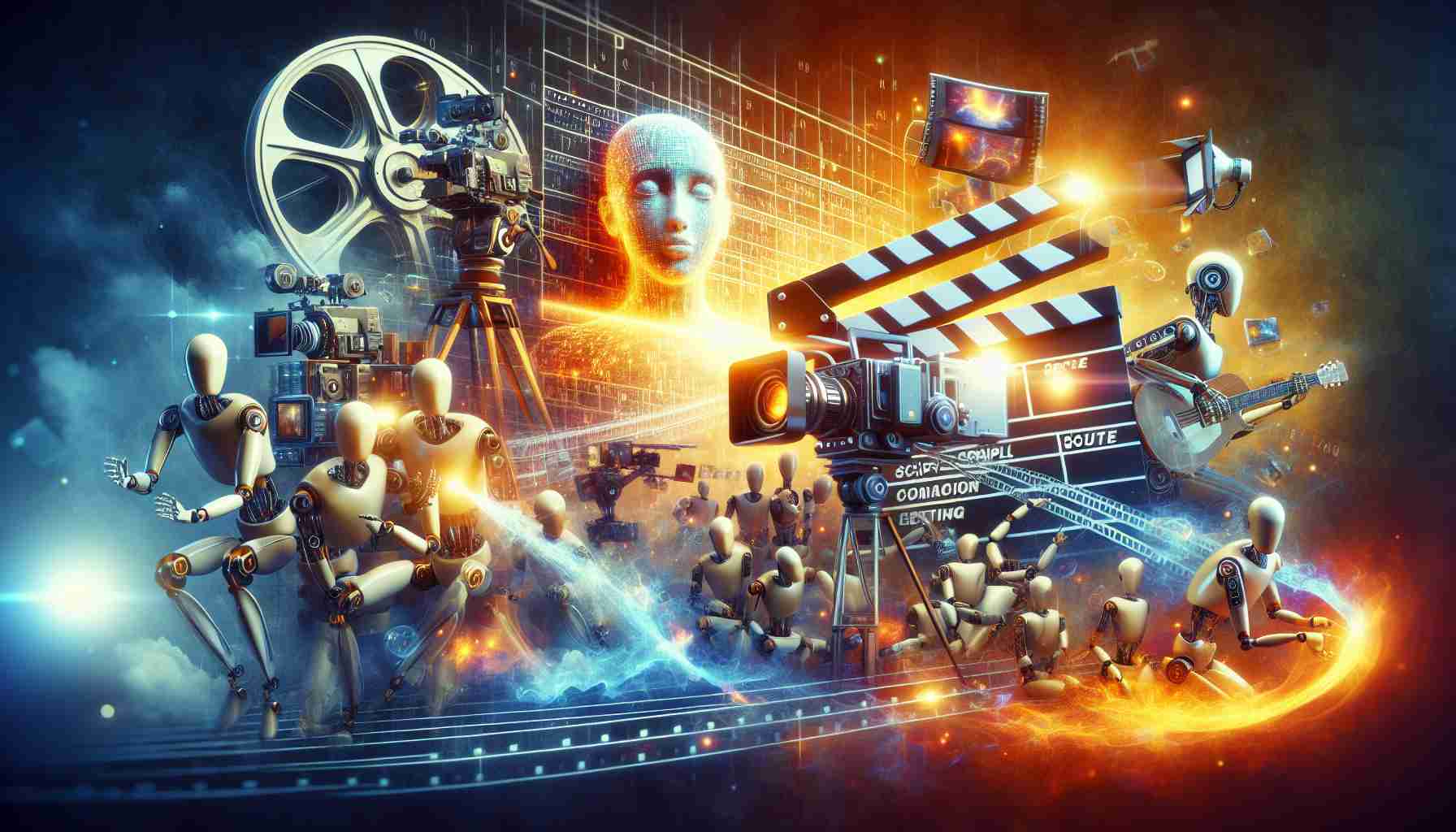The conversation surrounding the impact of artificial intelligence (AI) in the entertainment industry continues to be a topic of debate and concern. A recent poll conducted by the National Research Group sheds light on how those within the movie/TV industry perceive the role of AI in their careers.
According to the poll, 42% of professionals in the film and television industry believe that AI will ultimately have a detrimental effect on their profession. In contrast, 32% are optimistic and believe that AI will bring benefits to their field. The remaining quarter of respondents either expressed uncertainty or indifference towards the impact of AI.
It is worth noting that the poll was not limited exclusively to Hollywood but also included individuals with “high degrees of creativity and autonomy.” By comparing these numbers with other creative fields, it becomes clear that those in the entertainment industry are among the most concerned about the impact of AI. Photography (41%), graphic design/illustration (42%), the music industry (45%), journalism (48%), and literature/creative writing (49%) also exhibit similar levels of concern. On the other hand, professions such as software development, web design, and the gaming industry are more optimistic about the benefits AI can bring.
One key aspect of the discussion surrounding AI in the entertainment industry is the issue of intellectual property (IP) ownership. A majority of those polled across the target professions (85%) agreed that there needs to be laws and regulations in place to protect IP and copyrights. This issue became particularly contentious during last year’s Hollywood strikes.
Another point of contention is the need for transparency in disclosing the use of AI. Recent incidents, such as the case of the horror film “Late Night with the Devil,” have brought this issue to the forefront. The filmmakers incorporated AI-generated images into the film without informing the audience, resulting in backlash once the information was revealed on social media. More than 75% of respondents in the poll expressed the belief that it should be mandatory to disclose whenever AI is involved in the creation of a piece of media.
As the debate over AI continues, it invites reflection on its potential impact across various industries. Which industries do you believe will be most affected by the use of AI in the coming years?
The impact of artificial intelligence (AI) is not limited to the entertainment industry. In fact, AI is expected to revolutionize various industries and reshape the way business is conducted. Here are some industries that are likely to be significantly affected by the use of AI in the coming years:
1. Healthcare: AI has the potential to greatly improve patient care, diagnosis, and treatment. Machine learning algorithms can analyze vast amounts of medical data to identify patterns and make predictions, leading to more accurate and personalized healthcare. AI can also assist in drug discovery, robotic surgeries, and remote patient monitoring.
2. Finance: AI is already being used in the finance industry for tasks such as fraud detection, algorithmic trading, and risk assessment. With advancements in natural language processing, chatbots and virtual assistants powered by AI are becoming more prevalent in customer service and financial advice.
3. Manufacturing: AI-driven automation is transforming the manufacturing sector. Robotics and AI-powered machines can improve efficiency, reduce errors, and optimize production processes. AI can also enable predictive maintenance, helping companies identify and address machine failures before they happen.
4. Transportation: The transportation industry is poised for major disruption with the emergence of AI. Self-driving cars and autonomous vehicles are becoming a reality, with AI playing a crucial role in navigation, traffic prediction, and vehicle safety. Logistics and supply chain management can also benefit from AI technologies.
5. Retail: AI is revolutionizing the retail industry, from personalized marketing and conversational chatbots to inventory management and demand forecasting. AI-powered recommendation systems can analyze customer preferences and behavior to deliver more targeted offers and enhance the shopping experience.
Market forecasts highlight the growing importance of AI in these industries. According to a report by Grand View Research, the global AI market size is projected to reach $733.7 billion by 2027, with the healthcare sector expected to witness the highest growth rate. Another report by MarketsandMarkets estimates that the AI in retail market will grow at a CAGR of 35.9% from 2020 to 2025.
However, along with the potential benefits, there are also concerns and challenges associated with the widespread adoption of AI across industries. Ethical considerations, data privacy, job displacement, and bias in AI algorithms are some of the issues that need to be addressed.
For more information on the impact of AI in various industries, you can visit reputable sources like:
Forbes AI Section
Deloitte’s Cognitive Technologies
PwC’s AI Insights
Keep in mind that the field of AI is constantly evolving, so staying informed through trusted sources is essential to understand its impact on industries and market forecasts.

